第94章 CHAPTER VII.(4)
The French Ministry were offended at the following pasquinade:- "The three eagles have rent the Polish bear, without losing a feather with which any man in the Cabinet of Versailles can write. Since the death of Mazarin, they write only with goose-quills."By desire of the King of Poland, I wrote a narrative of the attempt made to assassinate him, and named the nuncio who had given absolution to the conspirators in the chapel of the Holy Virgin.
The house was now in flames. Rome insisted I should recall my words. Her nuncio, at Cologne, vented poison, daggers, and excommunication; the Empress-Queen herself thought proper to interfere. I obtained, for my justification, from Warsaw a copy of the examination of the conspirators. This I threatened to publish, and stood unmoved in the defence of truth.
The Empress wrote to the Postmaster-General of the Empire, and commanded him to lay an interdict on the Aix-la-Chapelle Journal.
Informed of this, I ended its publication with the year, but wrote an essay on the partition of Poland, which also did but increase my enemies.
The magistracy of Aix-la-Chapelle is elected from the people, and the Burghers' court consists of an ignorant rabble. I know no exceptions but Baron Lamberte and De Witte; and this people assume titles of dignity, for which they are amenable to the court at Vienna. Knowing I should find little protection at Vienna, they imagined they might drive me from their town. I was a spy on their evil deeds, of whom they would have rid themselves. I knew that the two sheriffs, Kloss and Furth, and the recorder, Geyer, had robbed the town-chamber of forty thousand dollars, and divided the spoil.
To these I was a dangerous man. For such reasons they sought a quarrel with me, pretending I had committed a trespass by breaking down a hedge, and cited me to appear at the town-house.
The postmaster, Heinsberg, of Aix-la-Chapelle, although he had two thousand three hundred rix-dollars of mine in his possession, instituted false suits against me, obtained verdicts against me, seized on a cargo of wine at Cologne, and I incurred losses to the amount of eighteen thousand florins, which devoured the fortune of my wife, and by which she, with myself and my children, were reduced to poverty.
The Gravenitz himself, in 1778, acknowledged how much he had injured me, affirmed he had been deceived, and promised he would try to obtain restitution. I forgave him, and he attempted to keep his promise; but his power declined; the bribes he had received became too public. He was dispossessed of his post, but, alas! too late for me. Two other of my judges are at this time obliged to sweep the streets of Vienna, where they are condemned to the House of Correction. Had this been their employment instead of being seated on the seat of judgment twenty years ago, I might have been more fortunate. It is a remarkable circumstance that I should so continually have been despoiled by unjust judges. Who would have had the temerity to affirm that their evil deeds should bring them to attend on the city scavenger? I indeed knew them but too well, and fearlessly spoke what I knew. It was my misfortune that I was acquainted with their malpractices sooner than gracious Sovereign.
Let the scene close on my litigations at Aix-la-Chapelle and Vienna.
May God preserve every honest man from the like! They have swallowed up my property, and that of my wife. Enough!